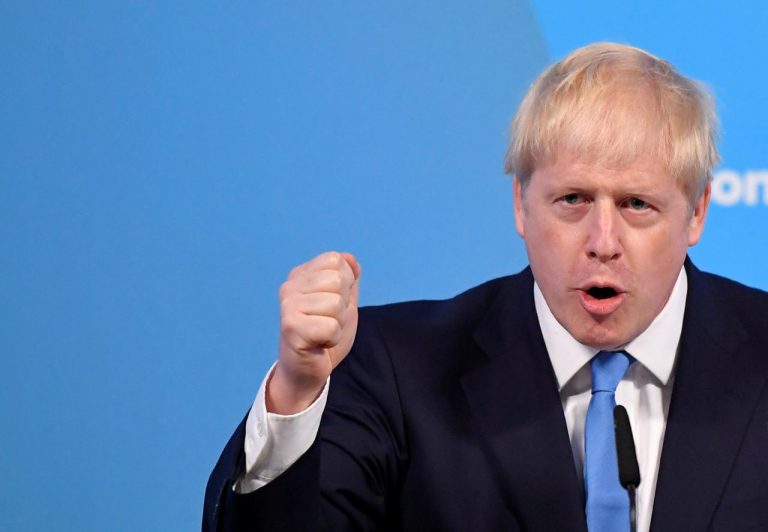
(Reuters) – Boris Johnson promised in his first speech as prime minister to lead Britain out of the European Union on Oct. 31 with “no ifs or buts” and warned that if the bloc refused to negotiate then there would be a no-deal Brexit.
Johnson, who has been hailed by U.S. President Donald Trump as Britain’s Trump, is sending the strongest message yet to the EU that he will be taking a distinctly tougher approach to negotiating a revision of the Brexit divorce deal.
He took over from Theresa May at one of the most perilous junctures in post-World War Two British history – the United Kingdom is divided over Brexit and weakened by the three-year political crisis that has gripped it since a 2016 referendum vote to leave the bloc.
“We are going to fulfil the repeated promises of parliament to the people and come out of the EU on October 31, no ifs or buts,” Johnson, 55, said after arriving at the premier’s official residence, No.10 Downing Street.
“We can do a deal without checks at the Irish border,” he said. “It is of course vital at the same time that we prepare for the remote possibility that Brussels refuses any further to negotiate and we are forced to come out with no deal.”
Just hours after arriving in Downing Street, the new Conservative Prime Minister began work with one of the biggest culls of senior government jobs in recent British history, changing all of the main ministers. Most of his appointees were Brexit supporters.
Johnson’s bet is that the threat of a no-deal Brexit will persuade the EU’s biggest powers – Germany and France – to agree to revise the divorce deal that May agreed last November but failed to push through the British parliament.
The gambit, an admission that three years of Brexit talks have failed, sets the United Kingdom up for a showdown with the EU and thrusts Johnson toward a potential constitutional crisis, or an election, at home.
While his strategy could get support from Trump, who had advised May to take a much tougher line with Brussels, he has just 99 days to renegotiate and ratify the so called Withdrawal Agreement that the EU has repeatedly refused to amend.
European Council President Donald Tusk wrote to Johnson saying he was looking forward to discussing cooperation “in detail”.





